15 start with R start with R
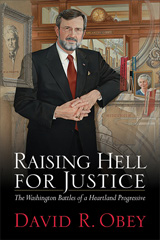
Here, in his autobiography, Obey looks back on his journey in politics beginning with his early years in the Wisconsin Legislature, when Wisconsin moved through eras of shifting balance between Republicans and Democrats. On a national level Obey traces, as few others have done, the dramatic changes in the workings of the U.S. Congress since his first election to the House in 1969. He discusses his own central role in the evolution of Congress and ethics reforms and his view of the recent Bush presidency—crucial chapters in our democracy, of interest to all who observe politics and modern U.S. history.
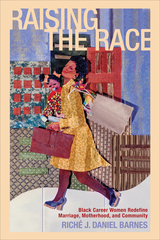
Popular discussions of professional women often dwell on the conflicts faced by the woman who attempts to “have it all,” raising children while climbing up the corporate ladder. Yet for all the articles and books written on this subject, there has been little work that focuses on the experience of African American professional women or asks how their perspectives on work-family balance might be unique.
Raising the Race is the first scholarly book to examine how black, married career women juggle their relationships with their extended and nuclear families, the expectations of the black community, and their desires to raise healthy, independent children. Drawing from extensive interviews with twenty-three Atlanta-based professional women who left or modified careers as attorneys, physicians, executives, and administrators, anthropologist Riché J. Daniel Barnes found that their decisions were deeply rooted in an awareness of black women’s historical struggles. Departing from the possessive individualistic discourse of “having it all,” the women profiled here think beyond their own situation—considering ways their decisions might help the entire black community.
Giving a voice to women whose perspectives have been underrepresented in debates about work-family balance, Barnes’s profiles enable us to perceive these women as fully fledged individuals, each with her own concerns and priorities. Yet Barnes is also able to locate many common themes from these black women’s experiences, and uses them to propose policy initiatives that would improve the work and family lives of all Americans.

Educational assessment is important. Yet it is easy to feel that schooling and other phases of education are shaped entirely by certain assessments and that assessment is only about exam results. The idea that grades can accurately describe the aims and outcomes of education is both reductive and pervasive. This book is about the stories we tell each other about educational assessment and how they impact public trust and confidence in educational assessment. It explains the roots and nature of assessment discourses and proposes a restructuring of the debate to rebuild public confidence. It aims to challenge dominant assessment discourses and demands a more nuanced, informed debate about what happens in and beyond schools, and how this influences public thinking. Using examples from international settings to explore the nature of trust in assessment discourses, this book shows how these discourses can be reframed so that all aspects of the assessment system—policymaking, school planning, home practice with students—can be delivered with confidence.

There are few issues more explosive than guns. "Guns don't kill people, people kill people," is an often-heard response to calls for firearm control. But are there ways to make guns safer without placing further restrictions on gun owners? Can guns be engineered to reduce the number and severity of injuries?
This book is about guns and new solutions for addressing problems they create. Trudy Karlson and Stephen Hargarten, two experts in public health and injury control, show readers how guns are products, designed to injure and kill, and how changes in the design, technology, and marketing of firearms can lead to reductions in the number of injuries and fatalities.
Just as innovations in the design and technology of motor vehicles succeeded in creating safer cars, Karlson and Hargarten describe how responsible changes to gun products can reduce the number of serious injuries and fatalities. The injury control perspective illustrates how the characteristics of guns and ammunition are associated with their ability to cause injury and death. It also provides options for how guns can be re-engineered to ensure a greater degree of safety and protection. Reducing Firearm Injury and Death teaches basic facts about guns and gun injuries, and by reframing the problem of firearms as a public health issue, offers hope for saving lives.
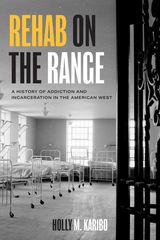
The first study of the Fort Worth Narcotic Farm, an institution that played a critical role in fusing the War on Drugs, mass incarceration, and public health in the American West.
In 1929, the United States government approved two ground-breaking and controversial drug addiction treatment programs. At a time when fears about a supposed rise in drug use reached a fevered pitch, the emergence of the nation’s first “narcotic farms” in Fort Worth, Texas, and Lexington, Kentucky, marked a watershed moment in the treatment of addiction. Rehab on the Range is the first in-depth history of the Fort Worth Narcotic Farm and its impacts on the American West. Throughout its operation from the 1930s to the 1970s, the institution was the only federally funded drug treatment center west of the Mississippi River. Designed to blend psychiatric treatment, physical rehabilitation, and vocational training, the Narcotic Farm, its proponents argued, would transform American treatment policies for the better. The reality was decidedly more complicated.
Holly M. Karibo tells the story of how this institution—once framed as revolutionary for addiction care—ultimately contributed to the turn towards incarceration as the solution to the nation’s drug problem. Blending an intellectual history of addiction and imprisonment with a social history of addicts’ experiences, Rehab on the Range provides a nuanced picture of the Narcotic Farm and its cultural impacts. In doing so, it offers crucial historical context that can help us better understand our current debates over addiction, drug policy, and the rise of mass incarceration.
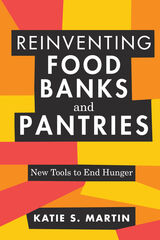
In Reinventing Food Banks and Pantries, Katie Martin argues that if handing out more and more food was the answer, we would have solved the problem of hunger decades ago. Martin instead presents a new model for charitable food, one where success is measured not by pounds of food distributed but by lives changed. The key is to focus on the root causes of hunger. When we shift our attention to strategies that build empathy, equity, and political will, we can implement real solutions.
Martin shares those solutions in a warm, engaging style, with simple steps that anyone working or volunteering at a food bank or pantry can take today. Some are short-term strategies to create a more dignified experience for food pantry clients: providing client choice, where individuals select their own food, or redesigning a waiting room with better seating and a designated greeter. Some are longer-term: increasing the supply of healthy food, offering job training programs, or connecting clients to other social services. And some are big picture: joining the fight for living wages and a stronger social safety net.
These strategies are illustrated through inspiring success stories and backed up by scientific research. Throughout, readers will find a wealth of proven ideas to make their charitable food organizations more empathetic and more effective. As Martin writes, it takes more than food to end hunger. Picking up this insightful, lively book is a great first step.
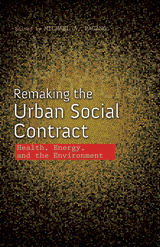
Contributors: Alba Alexander, Megan Houston, Dennis R. Judd, Cynthia Klein-Banai, William C. Kling, Howard A. Learner, David A. McDonald, David C. Perry, Emily Stiehl, Anthony Townsend, Natalia Villamizar-Duarte, and Moira Zellner.

Bhikhu Parekh argues for a pluralist perspective on cultural diversity. Writing from both within the liberal tradition and outside of it as a critic, he challenges what he calls the "moral monism" of much of traditional moral philosophy, including contemporary liberalism--its tendency to assert that only one way of life or set of values is worthwhile and to dismiss the rest as misguided or false. He defends his pluralist perspective both at the level of theory and in subtle nuanced analyses of recent controversies. Thus, he offers careful and clear accounts of why cultural differences should be respected and publicly affirmed, why the separation of church and state cannot be used to justify the separation of religion and politics, and why the initial critique of Salman Rushdie (before a Fatwa threatened his life) deserved more serious attention than it received.
Rejecting naturalism, which posits that humans have a relatively fixed nature and that culture is an incidental, and "culturalism," which posits that they are socially and culturally constructed with only a minimal set of features in common, he argues for a dialogic interplay between human commonalities and cultural differences. This will allow, Parekh argues, genuinely balanced and thoughtful compromises on even the most controversial cultural issues in the new multicultural world in which we live.
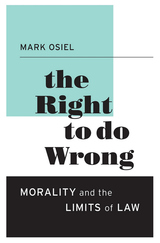
Common morality—in the form of shame, outrage, and stigma—has always been society’s first line of defense against ethical transgressions. Social mores crucially complement the law, Mark Osiel shows, sparing us from oppressive formal regulation.
Much of what we could do, we shouldn’t—and we don’t. We have a free-speech right to be offensive, but we know we will face outrage in response. We may declare bankruptcy, but not without stigma. Moral norms constantly demand more of us than the law requires, sustaining promises we can legally break and preventing disrespectful behavior the law allows.
Mark Osiel takes up this curious interplay between lenient law and restrictive morality, showing that law permits much wrongdoing because we assume that rights are paired with informal but enforceable duties. People will exercise their rights responsibly or else face social shaming. For the most part, this system has worked. Social order persists despite ample opportunity for reprehensible conduct, testifying to the decisive constraints common morality imposes on the way we exercise our legal prerogatives. The Right to Do Wrong collects vivid case studies and social scientific research to explore how resistance to the exercise of rights picks up where law leaves off and shapes the legal system in turn. Building on recent evidence that declining social trust leads to increasing reliance on law, Osiel contends that as social changes produce stronger assertions of individual rights, it becomes more difficult to depend on informal tempering of our unfettered freedoms.
Social norms can be indefensible, Osiel recognizes. But the alternative—more repressive law—is often far worse. This empirically informed study leaves little doubt that robust forms of common morality persist and are essential to the vitality of liberal societies.

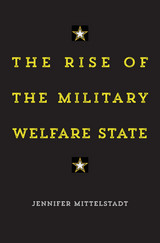
Since the end of the draft, the U.S. Army has prided itself on its patriotic volunteers who heed the call to “Be All That You Can Be.” But beneath the recruitment slogans, the army promised volunteers something more tangible: a social safety net including medical and dental care, education, child care, financial counseling, housing assistance, legal services, and other privileges that had long been reserved for career soldiers. The Rise of the Military Welfare State examines how the U.S. Army’s extension of benefits to enlisted men and women created a military welfare system of unprecedented size and scope.
America’s all-volunteer army took shape in the 1970s, in the wake of widespread opposition to the draft. Abandoning compulsory conscription, it wrestled with how to attract and retain soldiers—a task made more difficult by the military’s plummeting prestige after Vietnam. The army solved the problem, Jennifer Mittelstadt shows, by promising to take care of its own—the more than ten million Americans who volunteered for active duty after 1973 and their families. While the United States dismantled its civilian welfare system in the 1980s and 1990s, army benefits continued to expand.
Yet not everyone was pleased by programs that, in their view, encouraged dependency, infantilized soldiers, and feminized the institution. Fighting to outsource and privatize the army’s “socialist” system and to reinforce “self-reliance” among American soldiers, opponents rolled back some of the military welfare state’s signature achievements, even as a new era of war began.
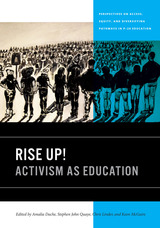

In Romancing the Sperm, Diane Tober explores the intersections between sperm donation and the broader social and political environment in which “modern families” are created and regulated. Through tangible and intimate stories, this book provides a captivating read for anyone interested in family and kinship, genetics and eugenics, and how ever-expanding assisted reproductive technologies continue to redefine what it means to be human.
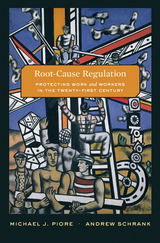
Work is now more deadly than war, killing approximately 2.3 million people a year worldwide. The United States, with its complex regulatory system, has one of the highest rates of occupational fatality in the developed world, and deteriorating working conditions more generally. Why, after a century of reform, are U.S. workers growing less safe and secure? Comparing U.S. regulatory practices to their European and Latin American counterparts, Root-Cause Regulation provides insight into the causes of this downward trend and ways to reverse it, offering lessons for rich and poor countries alike.
The United States assigns responsibility for wages and hours, collective bargaining, occupational safety, and the like to various regulatory agencies. In France, Spain, and their former colonies, a single agency regulates all firms. Drawing on history, sociology, and economics, Michael Piore and Andrew Schrank examine why these systems developed differently and how they have adapted to changing conditions over time. The U.S. model was designed for the inspection of mass production enterprises by inflexible specialists and is ill-suited to the decentralized and destabilized employment of today. In the Franco-Iberian system, by contrast, the holistic perspective of multitasking generalists illuminates the root causes of noncompliance—which often lie in outdated techniques and technologies—and offers flexibility to tailor enforcement to different firms and market conditions.
The organization of regulatory agencies thus represents a powerful tool. Getting it right, the authors argue, makes regulation not the job-killer of neoliberal theory but a generative force for both workers and employers.
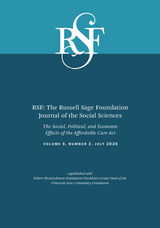
This journal issue explores the political dimensions of the rollout of the ACA and the attendant backlash. Contributors Helen Levy, Andrew Ying, and Nicholas Bagley argue that despite repeated efforts at repeal, over 80 percent of the Act has been implemented as it was originally intended. Julianna Pacheco, Jake Haselswerdt, and Jamila Michener show that when Republican governors support Medicaid expansion, Republican voters become more favorable toward the ACA, and polarization between Republican and Democrat voters decreases. Yet Charles Courtemanche, James Marton, and Aaron Yelowitz find little impact of the ACA on voter participation. Lisa Beauregard and Edward Miller examine states’ adoption of the ACA’s home and community-based care services for the elderly and people with disabilities, finding that states with more liberal elected officials and more fiscal capacity were more likely to adopt these provisions. Paul Shafer, David Anderson, Seciah Aquino, Laura Baum, Erika Franklin Fowler, and Sarah Gollust probe the role of different types of health insurance and political advertising on insurance enrollment. Richard Fording and Dana Patton explain the emergence of contentious Medicaid work requirements and patient co-pays that limit access to Medicaid.
Other contributors address how the ACA affects marginalized populations. Carrie Fry, Thomas McGuire, and Richard Frank link Medicaid expansion to lower rates of recidivism among the formerly incarcerated. Radhika Gore, Ritu Dhar, Sadia Mohaimin, Priscilla Lopez, Anna Divney, Jennifer Zanowiak, Lorna Thorpe, and Nadia Islam study primary care practices serving South Asian immigrants in New York City and highlight the importance of social context and organizational constraints in designing population health interventions. The issue also examines the economic effects of the ACA, especially on access to private and public health insurance. Both Mark Hall and Jean Abraham study instability in ACA health insurance markets, with Hall focusing on uncertainty arising from political factors and Abraham examining the factors that lead local markets to face high premiums and low insurer participation. Philip Rocco and Andrew Kelly explore the mechanisms included in the ACA to try to spur innovations in care delivery that both improve health and generate long-term cost savings.
As the COVID-19 pandemic affects healthcare in unprecedented ways, affordable healthcare access is critical. This RSF journal issue offers a timely, thoughtful consideration of one of the most pressing issues in American life.
READERS
Browse our collection.
PUBLISHERS
See BiblioVault's publisher services.
STUDENT SERVICES
Files for college accessibility offices.
UChicago Accessibility Resources
home | accessibility | search | about | contact us
BiblioVault ® 2001 - 2024
The University of Chicago Press









